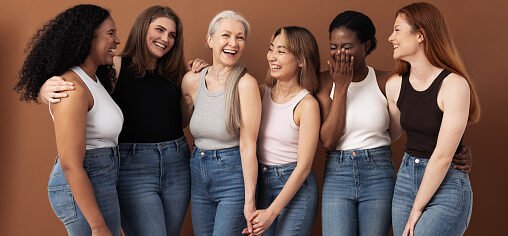
Vulnerability is a Bridge to Confidence
Sometimes it still feels like a man’s world. As far as we’ve come as women, we still have a loooong way to go. And sometimes, you really feel it. Let’s take a look at it for a moment.
As women, we often face numerous vulnerabilities. We are generally more physically vulnerable due to our smaller size and the prevalence of harassment and assault. We face uneven access to healthcare and medical research bias, leaving us vulnerable in that domain as well. Economic vulnerabilities arise from inequitable access to education, the wage gap, occupational segregation, and the fact that we are often the primary caretakers of children. We also shoulder a disproportionate amount of emotional labor in both personal relationships and professional settings, and the continued stigmatization of mental health issues makes us psychologically vulnerable.
That’s a lot of vulnerability.
Whew, I need a sec here. That feels so contracted and dense, doesn’t it?
But let’s shake that off. Let’s see what else we can discover about this.
The “I Can Do Anything Myself” Approach
The additional problem is that in our attempts to shield ourselves from these vulnerabilities, we’ve adopted an “I can do anything myself” approach. Well, I’ll admit, that sounds great! Really powerful. While this attitude is rooted in strength and resilience, however, it can (and so often does) also lead to isolation. Everyone needs help, and by cutting ourselves off from others due to our vulnerabilities, we miss out on a fundamental human need for connection and support. We’ve interpreted strength as “doing it all myself,” but no one can do everything alone. The real kicker is that this disconnect can actually create a lack of confidence.
Deep down, we know we need others to achieve our full potential. When we keep ourselves apart from others, we feel insecure and lack confidence. We procrastinate, we second-guess ourselves, and we miss out on the 1+1=5! synergy that happens when we truly live by “two heads are better than one”.
The Positive Side of Vulnerability
So let’s talk about another form of vulnerability that has a positive outcome. When we allow others to see that we need help (and you get to choose who those people are), we are vulnerable, yes. But when we ask for help, we’re not just getting the support we need. We’re also giving others a chance to shine. Don’t YOU feel good when you can use your skills or knowledge to help someone else? Of course you do! People are social creatures and fundamentally WANT to help. By asking for help, we show that we trust and value others’ skills. This empowers them to step up and feel more confident in their abilities.
Allowing others to help you, helps them build their confidence – check!
When we feel supported, our confidence naturally grows. Knowing we can rely on each other makes us more willing to take risks and step out of our comfort zones. We’re not as afraid to fail because we know we have a support system. As our confidence grows, we become more willing to help others.
Creating a positive cycle where everyone benefits and grows together – check!
Embracing Vulnerability to Build Confidence
It all begins with the courage to be vulnerable. By opening up and asking for help, we foster a sense of community and mutual support. This vulnerability, rather than being a weakness, becomes a source of strength and confidence. It allows us to connect with others on a deeper level, build trust, and create a network of support that empowers everyone involved.
So, let’s redefine strength. It’s not about doing everything ourselves; it’s about knowing when to ask for help and allowing others to support us. By embracing our human vulnerabilities, we not only grow stronger and more confident ourselves but also contribute to the strength and confidence of those around us. Together, we can create a more supportive, connected, and empowered world for everyone.
Conclusion
As women, we face many challenges and vulnerabilities. But by embracing our human need for connection and support, we can turn these vulnerabilities into sources of strength and even confidence. Let’s redefine what it means to be strong by recognizing the power of this type of vulnerability. By embracing our vulnerabilities, we can also address the other types of vulnerabilities mentioned earlier. It’s an added bonus: seeking support and sharing experiences can lead to collective action to address physical safety, healthcare access, and economic inequities. When we stand together, we can advocate for better policies, more equitable workplaces, and improved mental health resources. When we support each other, we all rise together.
